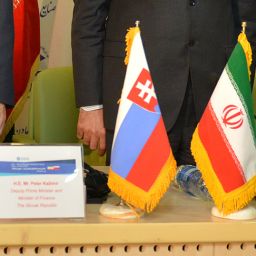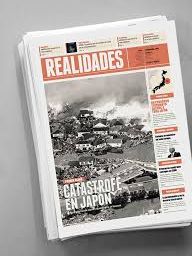Corporate News & Business
South Korea to deliver 1st mega-container vessel to Iran in March 2018 (Tehran Times, 09 March 2017)
Managing Director of Islamic Republic of Iran Shipping Lines (IRISL) Mr. Mohammad Saeedi announced South Korea’s Hyundai Heavy Industries Company, Ltd. (HHI) will deliver the first TEU 14500 mega-container vessel to Iran by March 2018. After the first delivery HII is going to deliver one vessel every month. In December 2016, IRISL signed an agreement with HHI based on which the S. Korean company will build mega-container vessels as well as tankers for carrying petroleum products for Iran. Mr. Saeedi said that maritime transportation accounts for more than 87% of Iran’s trade.
Technical, engineering services export reach US$ 2 billion post-sanctions (Tehran Times, 09 March 2017)
Iran has exported over US$ 2 billion worth of technical and engineering services since the implementation of Joint Comprehensive Plan of Action (JCPOA) in January 2016. According to Head of International Consultants and Contractors Association (ICCA) of Iran Mr. Mohammad-Reza Ansari, electrical engineering and technical services account for most of the increase in this sector’s value of exports. The official noted that further development of exports in this area needs removing the hindering barriers among which banking issues especially issuance of bank guarantee could be mentioned. Iran mainly carries out constructional, power, and road building projects overseas.
Saffron exports: 85 tons worth US$ 98 million (Financial Tribune, 09 March 2017)
Iran exported more than 85 tons of saffron worth about US$ 98 million during the 10 months to 19 January 2017, according to the Islamic Republic of Iran Customs Administration. Germany, Spain, the UK, Belgium, the Czech Republic, Japan, Sweden, France, the UAE, the Philippines, Canada, Poland, Norway, New Zealand and the Netherlands were the main export destinations. Last year’s production stood at over 350 tons, indicating a 25% rise year-on-year, of which about 130 tons were exported. Iran is the world’s biggest saffron producer and accounts for more than 93% of the global production. Close to 95% of the Iranian saffron are grown in the two provinces of South Khorasan and Khorasan Razavi in northeastern Iran.
Tehran, Moscow, Baku reach cut rail tariffs by 50% (Mehr News Agency, 08 March 2017)
A trilateral meeting between Iran, Russia and Azerbai
jan agreed to reduce railway tariffs by 50% in order to boost the North-South Transport Corridor. Deputy Head of the Islamic Republic of Iran Railway Company for Operation Affairs Mr. Hossein Ashouri stated that after 14 years, Iran, Russia and India have finally agreed on launch of the corridor while the first test freight train was deployed to the Mumbai-Bandar Abbas- Astara-Moscow route in 2016.
France’s Alstom eager to build monorail in Tehran (Mehr News Agency, 08 March 2017)
During a meeting in Tehran with the French Ambassador to Iran Mr. François Sénémaud as well as CEO of Business France Mrs. Muriel Pénicaud, Head of Iran Chamber of Commerce, Industries, Mines and Agriculture (ICCIMA) Mr. Gholamhossein Shafei head said France’s experience could prove helpful in Iran’s plan to develop urban and suburban rail routes. ICCIMA Managing Director added that given Iran’s great potentials in various arenas, Tehran and Paris could join hands in projects like LNG, oil, gas and petrochemicals, renewable energies, tourism, chemical industries as well as information technology. The French Ambassador reported on construction of Tehran’s monorail in joint partnership with Alstom company, underlining that numerous French firms will be able to finance Iranian projects in case monetary issues are resolved.
300 French companies interested in entering the Iranian market (La Croix, 08 March 2017)
Business France Managing Director Mrs. Muriel Pénicaud has said that some 300 French companies wishing to establish themselves in Iran have been accompanied by the public agency Business France since the lifting of international sanctions against this country in January 2016. This public agency responsible for supporting French companies abroad and foreign companies in France opened an office in Tehran in September 2015. Since then, more than 2,000 French companies, especially small and medium-sized enterprises (SMEs), have shown enthusiasm and interest in Iran according to Ms. Pénicaud. Business France has accompanied 300 companies on the Iranian market. These companies come from sectors as diverse as the agri-food, oil, aeronautics, construction or sporting equipment. However, Mrs. Pénicaud acknowledges that very few have settled in Iran to date, partly due because it take a lot of time – around 2 to 3 years to set up all the financial and technical conditions, and to find the right partner in Iran. Business France Managing Director emphasized that exchanges between Iran and France must take place in a “win-win” perspective, including the establishment of Iranian companies France. Currently, 20,000 foreign companies have subsidiaries in France, only 20 of which are Iranian mainly in import-export. In this regards all opportunities are yet to be seized.
Renault sales to Iran rise 348% in January yr/yr (Tehran Times, 07 March 2017
According to a report released by the French multinational automobile manufacturer, Renault, the company could sell 13,449 cars during the first month of 2017 in Iran, showing a 348% increase compared to the same month last year. In January 2016, Renault sold more than 3,000 cars in the Iranian market. However, compared to the last month of 2016, the French company’s sales in Iran witnessed a nine-percent fall. In December 2016, Renault’s sales stood at 14,738 cars in Iran.
Denmark steps up co-operation with Iran (Tehran Times, 07 March 2017)
The Danish government has announced plans to expand its official co-operation with Iran through sustainable urban development and patents regarding products.To this end, the Foreign Ministry intends to deploy growth advisers to the nation where co-operative measures are already in full swing.
Iran to hit two car industry accords soon (Mehr News Agency, 07 March 2017)
Iran’s Minister of Industry, Mines, and Trade Mr. Mohammad Reza Nematzadeh said two automotive contracts with foreign partnership will be inked by the end of the current Iranian calendar year (21 March 2017). He added that said 30% of products will be deployed to global markets. Mr. Nematzadeh also touched upon foreign cooperation in manufacturing auto parts stating that several collaborations have been launched which will boost automaking, designing and exports capabilities. The Minister explained that Iran intends to reach a minimum output of 3 million vehicles per year while maintaining 50% of the share in brand and design. Mr. Nematzadeh recalled that the automotive industry accounted for nearly 18% of the Gross Domestic Product (GDP) noting that the volume of vehicles manufactured in Iran has increased by over 40%.
Iran places no limit on cooperation with EU members (Mehr News Agency, 07 March 2017)
Headed by Deputy Prime Minister for Investment of Slovakia Mr. Peter Pellegrini, the top-ranking Slovakian commerce delegation arrived in Tehran on March 07 to make a visit to the Tehran Chamber of Commerce, Industries, Mines and Agriculture (TCCIM). Iranian First Vice President Mr. Es’hagh Jahangiri said Iran welcomes investment of Slovakian companies and does not know any limits to cooperation with European Union member states. He referred to the exchange of high-ranking delegations and recent visits of both countries’ officials and said the trips can be instrumental in developing and strengthening bilateral relations. Mr. Jahangiri deemed the signing of MoU between the Ministry of Economic Affairs and Finance and the Bank of Slovakia as an important step in the development of economic relations between the two countries.
Eurasian Economic Union agrees to form free-trade zone with Iran (Press TV, 07 March 2017)
On 7 March 2017, The Eurasian Intergovernmental Council members held a meeting in Bishkek to discuss closer cooperation. They also signed a directive ordering preparations for a temporary agreement on forming a free-trade zone with Iran. Armenia, Belarus, Kazakhstan, Kyrgyzstan and the Russian Federation are the current member states of the union.
Finance
CBI and KPMG review IFRS adoption (Financial Tribune, 09 March 2017)
On 7 March 2017, the Central Bank of Iran (CBI) hosted a meeting to analyse obstacles to the implementation of the International Financial Reporting Standards (IFRS). issues related to Iran’s banking system such as financial assets categorization, impairment, fair valuation and lack of infrastructure to provide information for IFRS reporting were discussed. Senior managers and partners of KPMG – experienced in implementing IFRS across the world – shared their knowledge of financial reporting. International Financial Reporting Standards is a single set of accounting standards, developed and maintained by the International Accounting Standards Board. After the lifting of sanctions imposed on the banking system, the necessity of conforming to IFRS is crucial to ease and speed up the process of absorbing foreign resources. IFRS standards are now mandated for use by more than 120 countries, including the European Union and by more than two-thirds of G20 members.
Tehran and Bangkok stress need to strengthen banking cooperation (Mehr News Agency, 07 March 2017)
Heading a delegation, Iran’s Foreign Minister Mr. Javad Zarif arrived in Jakarta on 6 March 2017 to participate in the first summit of the Indian Ocean Rim Association (IORA). He met with Thai counterpart Don Pramudwinai on the sidelines of the event and stressed the need for strengthening cooperation in the field of tourism and tourist exchanges. Mr. Zarif welcomed progress accomplished regarding implementation of the preferential trade agreement previously inked between the two countries and emphasized the need to strengthen banking cooperation.
Oil & Gas
Iran and Total begin talks on oil platform construction (Mehr News Agency, 07 March 2017)
Head of Industrial Projects Management of Iran Company (IPMI) Mr. Hassan Bovairi said that Iran has launched talks with France’s Total over the construction of gas compression rigs of Phase 11 in Bandar Abbas platform building yard. He also announced that the development plan for South Pars Phases 17 and 18 was ready for official inauguration saying that presently, 44 subsea wells have been drilled and gas recovery has begun as well as that four offshore rigs each with a capacity of 500 million cubic feet have come on stream. The official pointed to operation of two 32-inch submarine pipelines each with a length of 110 kilometers stating that refineries of Phases 17 and 18 can now produce 50 million cubic meters of sweet gas per day as well as that units for extraction of gas condensate, sulfur, ethane and LPG have been launched.
Philippines to build LNG plant in Iran (Mehr News Agency, 07 March 2017)
Official at Pergas International Consortium Mr. Masoud Besharati pointed to the formation of the first international consortium for development of Iranian oil and gas fields and in partnership with several European and Asian firms like Norway’s AGR, Philippine National Oil Company as well as some other American, British and Canadian companies saying that the consortium aims at running development projects in order to increase recovery factor in Iran’s oil and gas fields. He also noted that Philippines is seeking to construct a two-million-ton LNG plant in Iran. The official referred to another cooperation agreement between the National Iranian Oil Company (NIOC) and the Philippine National Oil Company to supply feedstock to a 400-barrel crude refinery.
Petrochemical output reaches unprecedented level (Mehr News Agency, 07 March 2017)
Director of Production Control in Iran’s National Petrochemical Company (NPC) Mr. Alimohammad Bosaghzadeh has said production volume of petrochemical and polymer materials has climbed by 8% to reach new record high of 50 million tons. He emphasized that the uplift in Iran’s petrochemical output resulted from the rise in feedstock supply brought about by operation of new South Pars phases.
By Natela Outtier



